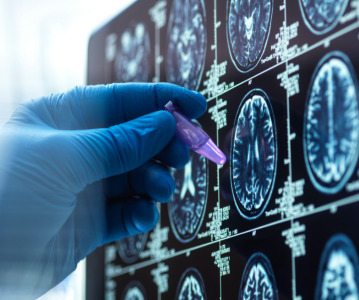NICE recommendation could save the NHS millions

Approximately 40,000 women in England seek hospital treatment for uterine fibroids every year.
The National Institute for Health and Care Excellence (NICE) has issued an updated guideline recommending the use of Esmya (ulipristal acetate 5 mg), up to four courses, as first-line treatment for patients presenting with heavy menstrual bleeding and uterine fibroids 3 cm or more in diameter. Clinical data has shown that four courses of Esmya resulted in 73% of eligible patients achieving “normal” (controlled) bleeding, and a 72% fibroid volume reduction from baseline. Current treatment options include major surgery, such as hysterectomy, which can significantly affect a woman’s ability to have children and are costly to the NHS; surgical treatment for uterine fibroids cost NHS England £119 million in 2015 alone. Esmya, a once-daily pill, offers the first medical treatment licensed for the long-term management of uterine fibroids for the approximate 40,000 women who are treated in hospital in England every year. Up until now, roughly half of women presenting with uterine fibroids have been treated with an invasive procedure at least once.
“Uterine fibroids are extremely common and a significant proportion of women will experience associated symptoms, which can include heavy menstrual bleeding and severe pain,” said Mr Ertan Saridogan, Consultant Gynaecologist, University College Hospital and The Portland Hospital. “Esyma has been proven to target the fibroids directly, both reducing growth and easing these symptoms, therefore improving a woman’s quality of life.”
Around 1 in 3 women develop uterine fibroids at some time in their life, and approximately 20-40% of these women will suffer from symptoms. Uterine fibroids are benign (non-cancerous) tumours, which grow in the uterus and are common in women of a child-bearing age. Around 40% of women diagnosed with fibroids have experienced fertility issues. In addition to this, 75% of sufferers consider the condition to have a severe impact on the quality of their day-to-day life and half of women with uterine fibroids say that their condition makes them depressed. This is a result of having to cope with on-going symptoms such as prolonged painful bleeding, heavy menstrual bleeding (HMB), pressure on the bladder, alongside pregnancy complications and pain during intercourse.
“Uterine fibroids are common and can cause women significant problems due to their size, position or effect on bleeding. Up until now we have only been able to remove or shrink them using procedures that require hospital admission,” said Dr Sarah Gray of the Primary Care Women’s Health Forum and a GP Specialist in Women’s Health, Cornwall. “NICE has now affirmed that a medical treatment which requires only the taking of tablets is effective and can be offered to women by experienced doctors. If a woman has fibroid-related problems that are affecting her life, she should go to her healthcare provider and discuss what is best for her as surgery is not inevitable.”
Related News
-
News Cassava Sciences halts Alzheimer's drug trial after limited progress
Cassava Sciences have drawn a close to their investigations and development of the drug simufilam, which they intended to be used for the treatment of Alzheimer’s disease. -
News US FDA adds haemodialysis bloodlines to devices shortage list
On March 14, 2025, the US FDA published an open letter to healthcare providers citing continuing supply disruptions of haemodialysis bloodlines, an essential component of dialysis machines. -
News Vertex Pharmaceuticals stock jumps as FDA approves non-opioid painkiller
UK-based Vertex Pharmaceuticals saw their stock shares soar as the US FDA signed off on the non-opioid painkiller Journavx, also known as suzetrigine, for patients with moderate to severe acute pain, caused by surgery, accidents, or injuries. -
News Lessons from CPHI Milan 2024: Sunny Intervals for Pharma Manufacturing?
As the 2024 CPHI conference wrapped up in Milan, we caught up with L.E.K. Consulting – a global strategy consulting firm with deep expertise in pharma manufacturing – to discuss evolving market perspectives and business outlook. -
News US BIOSECURE Act passed by US House of Representatives
The controversial act, which has already impacted several foreign companies operating in the US, was passed by the House of Representatives on September 9, 2024. It is now headed for the US Senate before it can be signed into law by President Joe Biden... -
News Pharmaceutical Supply Chain People Moves
The latest appointments, promotions, and structural changes across the pharmaceutical supply chain. -
News Drug prices agreed upon as part of the US Inflation Reduction Act
The Inflation Reduction Act brought into constitution by the Biden administation in 2022, which proposed a drug price negotiation between the government and pharmaceutical companies, has reached it's first agreement. -
News BIOSECURE Act continues to loom over Chinese pharma manufacturers
With the US BIOSECURE Act on its way to passing into legislation, Chinese companies are facing declining revenues within the first half of 2024 as US pharmaceutical and healthcare companies pull their businesses from the country.
Recently Visited
Position your company at the heart of the global Pharma industry with a CPHI Online membership
-
Your products and solutions visible to thousands of visitors within the largest Pharma marketplace
-
Generate high-quality, engaged leads for your business, all year round
-
Promote your business as the industry’s thought-leader by hosting your reports, brochures and videos within your profile
-
Your company’s profile boosted at all participating CPHI events
-
An easy-to-use platform with a detailed dashboard showing your leads and performance







.png)